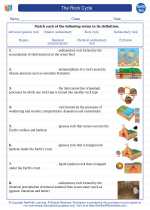Respiration
Respiration is the process by which living organisms take in oxygen and release carbon dioxide. In the context of biology, respiration refers to the cellular process that releases energy from food molecules. There are two main types of respiration: aerobic respiration, which requires oxygen, and anaerobic respiration, which occurs in the absence of oxygen.
Aerobic Respiration
Aerobic respiration is the most efficient form of respiration and takes place in the mitochondria of cells. It involves a series of biochemical reactions that ultimately convert glucose and oxygen into carbon dioxide, water, and ATP (adenosine triphosphate), which is the primary energy currency of the cell. The overall chemical equation for aerobic respiration is:
C6H12O6 + 6O2 → 6CO2 + 6H2O + 38 ATP
Anaerobic Respiration
When oxygen is not available, some organisms, such as certain bacteria and yeast, can undergo anaerobic respiration. This process is less efficient and produces lactic acid or ethanol as byproducts. The common types of anaerobic respiration include lactic acid fermentation and alcoholic fermentation.
Study Guide
- What is respiration?
- What are the two main types of respiration?
- Where does aerobic respiration take place in the cell?
- What are the products of aerobic respiration?
- What is the chemical equation for aerobic respiration?
- Give examples of organisms that undergo anaerobic respiration.
- What are the byproducts of anaerobic respiration?
- What are the common types of anaerobic respiration?
[Respiration] Related Worksheets and Study Guides:
.◂Earth Science Worksheets and Study Guides High School. The Rock Cycle
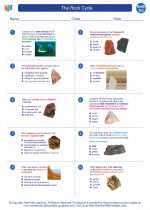
 Worksheet/Answer key
Worksheet/Answer key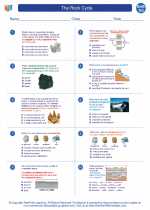
 Worksheet/Answer key
Worksheet/Answer key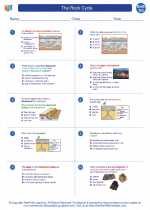
 Worksheet/Answer key
Worksheet/Answer key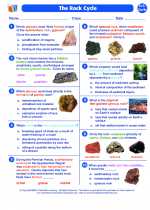
 Vocabulary/Answer key
Vocabulary/Answer key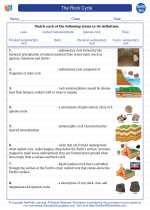
 Vocabulary/Answer key
Vocabulary/Answer key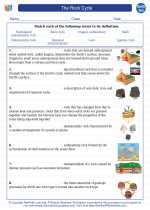
 Vocabulary/Answer key
Vocabulary/Answer key